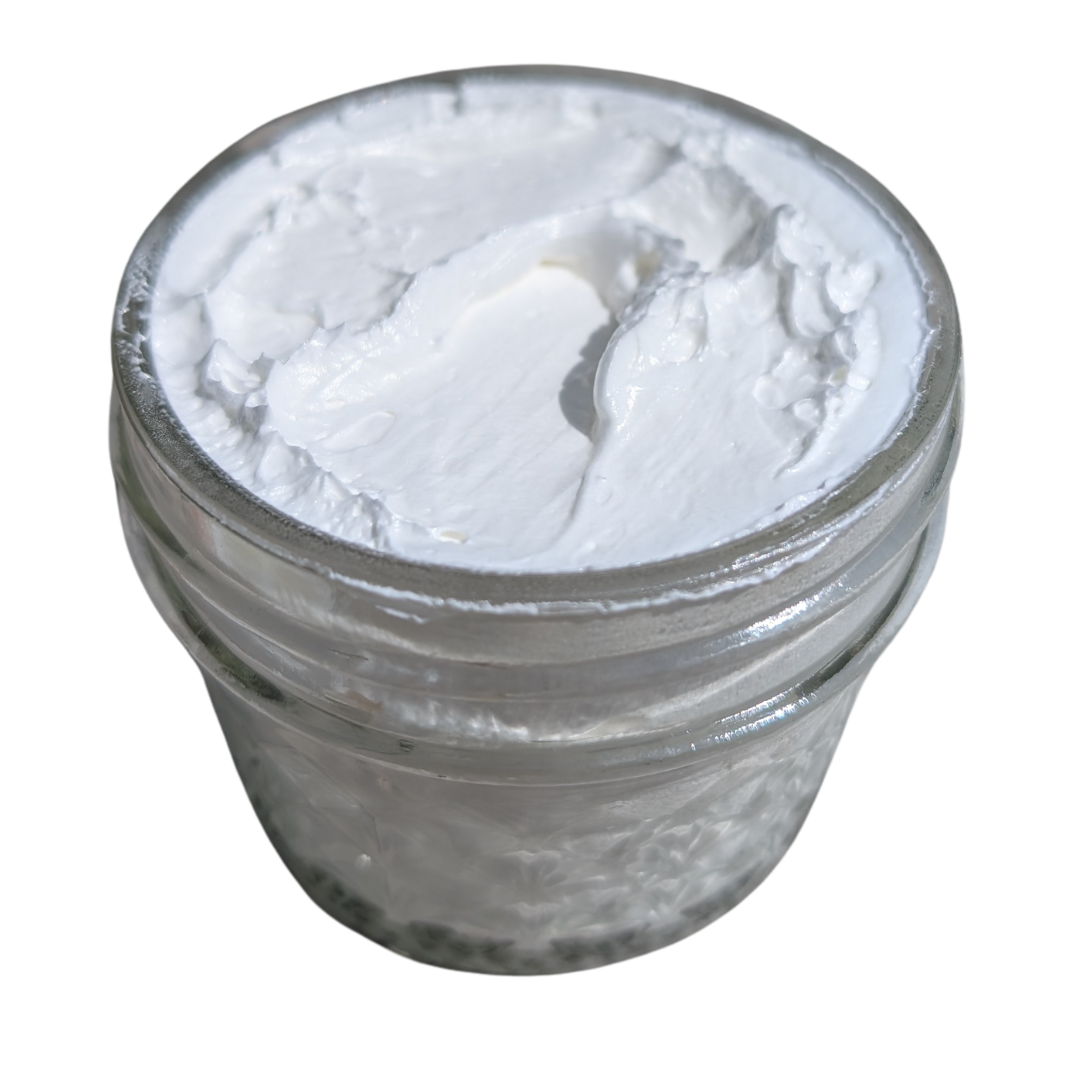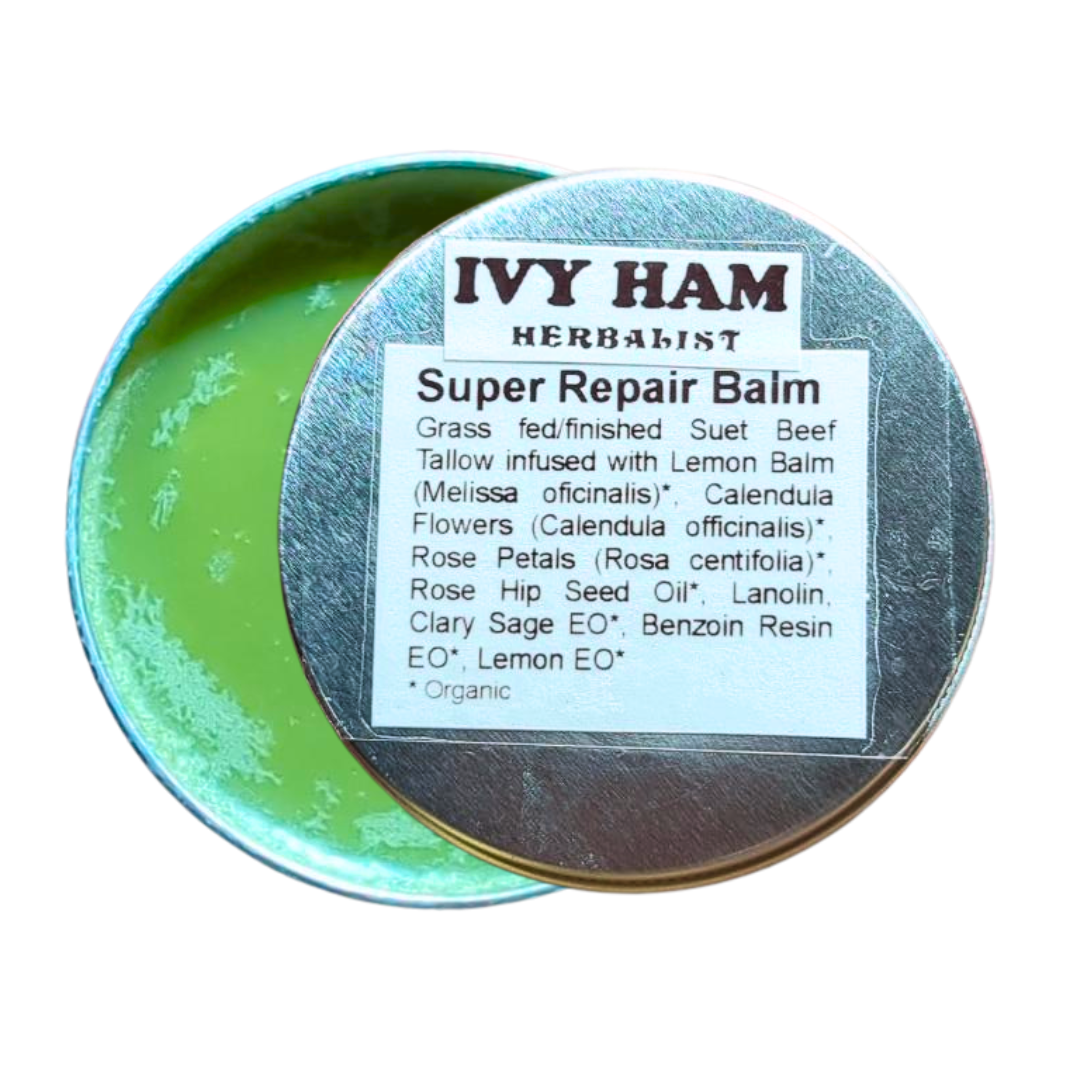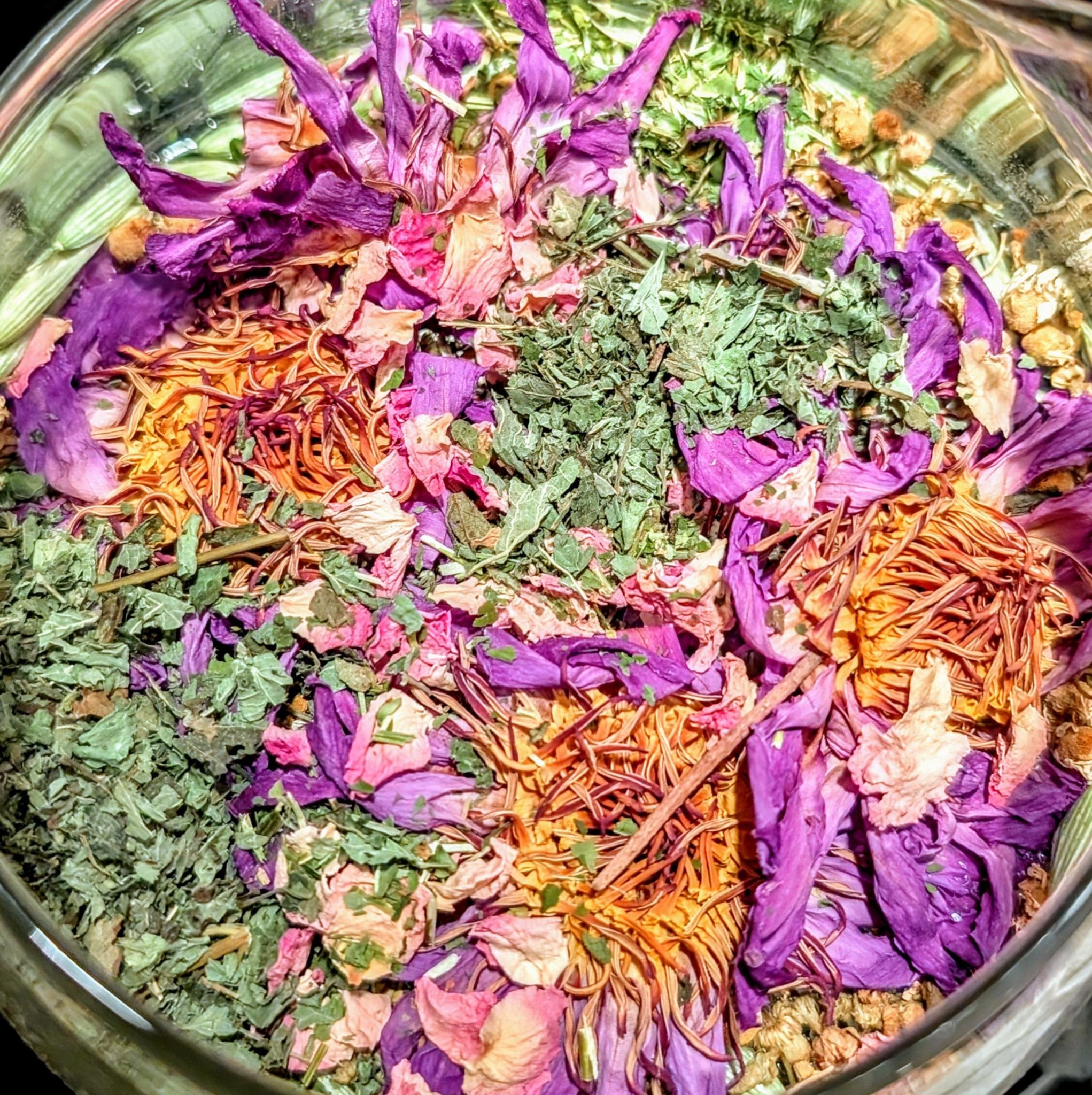Healing Acne & Nourishing Your Skin’s Microbiome
I used to obsess over my skin, pick at it and feel so ugly all the time. I suffered from severe acne and have tried every brand, formula of product, even prescription strength, but could not find relief for years. I went to the dermatologist several times, and spent hours on r/SkincareAddiction, searching for the unicorn product that would fix my skin.
In the process of trialing all of these products, I totally nuked my skins natural moisture barrier and microbiome, making me more susceptible to breakouts and neglected to address the root cause of my acne. I don’t have many pictures of my bare face during this time period as I was very self-conscious about my skins appearance.
I share this article in hopes it can save someone the stress and anguish of dealing with acne the way I did for years.
A Holistic Approach
Your skin is your body’s largest organ, and any imbalances or issues with the interior will often show up on your skin in some way. In my case, I was dealing with some really bad gut health issues and toxin buildup from an underperforming liver. Keep in mind that using topicals alone will not cure acne. Using a holistic approach to treat acne at the source is needed. It took several months following a targeted protocol to repair my gut before I started seeing improvements. Acne is pretty common with Leaky Gut, which is basically when there is too much space between the cells in your gut lining, allowing proteins to squeeze through and enter the blood stream where they are then attacked by the immune system, causing an inflammatory response.
Here are some articles about this topic that could be helpful:
Gut Health
Biologist and respected metabolic researcher Ray Peat emphasized the critical connection between gut health and skin conditions. According to Peat, digestive distress and gut inflammation can directly manifest as skin irritation, inflammation, and acne. To address this, Peat advocates reducing systemic inflammation through dietary adjustments. Key strategies include minimizing polyunsaturated fats (PUFAs), which he considers pro-inflammatory, and emphasizing easily digestible, nutrient-dense foods that support gut integrity and reduce intestinal stress. I agree with this approach, and think that dietary adjustments are one of the most effective ways to look at acne.
Liver Health
The liver plays a crucial role in skin health by processing and detoxifying substances that could otherwise cause inflammation and acne when expelled through the skin. My BFF Ray Peat points out that when the liver becomes overwhelmed by toxins and metabolic stress, it may indirectly lead to skin problems. I have found this to be true, but also when we consider conditions like psoriasis, these are usually understood in traditional healing systems to be linked to a toxin buildup in the system, which is usually at least in part due to a liver that is underperforming.
To support optimal liver function, Peat recommends consuming foods rich in protective nutrients, such as B vitamins, choline, and adequate protein. Avoiding toxins, excessive alcohol, and other liver-stressing substances also contributes significantly to maintaining clear skin.
Here are some easy ways to be mindful of your liver health:
Minimizing PUFA Intake: Reducing polyunsaturated fats from vegetable oils, nuts, and seeds lowers oxidative stress on the liver.
Consuming Adequate Protein: High-quality protein from dairy, eggs, gelatin, and seafood supports liver detoxification and regeneration.
B Vitamins and Choline: Nutrients like B1, B2, B3, B6, and choline from foods like eggs and liver aid liver detoxification.
Vitamin E Supplementation: Natural vitamin E protects the liver from PUFA-induced oxidative stress.
Avoiding Endotoxin and Gut Irritation: Reducing gut irritation by consuming easy-to-digest foods helps prevent endotoxins from burdening the liver.
Other Tips for Naturally Clear Skin
Avoid processed foods, fast food and food made with preservative chemicals.
Drink lots of water and hydrating liquids. Make sure to keep your electrolytes in balance by adding a pinch of high-quality salt.
Avoid eating oils with a high PUFA (polyunsaturated fat) content.
Eat an easy to digest diet. This is especially important for those with gut health issues. Diets high in fiber and plant-based nutrients can also be really tough on the digestive system, leading to nutrient assimilation issues and inflammation. This is also backed up by traditional Chinese medicine.
Ensure you are getting enough healthy fats — look for ones with a good omega 3 to omega 6 ratio and low PUFAs as this will help lower inflammatory responses, and fats are crucial for a healthy moisture barrier in the skin.
Exercise and/or sweat a few times per week to help the body remove natural wastes and toxins. Toxins like heavy metals, BPA, phthalates, PCBs and mycotoxins all are excreted via your sweat.
Avoid washing your face with harsh soaps. Instead, go for gentle cleansers that do not strip your face's natural oils. Washing too much or with too harsh of a soap can leave your face feeling dry and tight, leading to your face producing even more oil to compensate. Oil cleansing has been a game-changer for me.
Modern Commercial Skincare Products
Companies spend $$$ marketing their skincare products to people like us with problematic skin issues. I personally feel that these companies prey on our insecurities in order to sell products that are ultimately toxic for us, which is particularly worse for people living in the US where there are far fewer regulations on chemical additives in cosmetics. This goes for products marketed for acne, aging/wrinkles, discolorations, rosacea, crepe skin and any other aesthetic issue.
Feeling beautiful and looking youthful has become a billion dollar industry. There’s nothing wrong with adding a little makeup or using some of these products to feel fancy, but my personal opinion is that this should never come at the cost of your overall health and wellness. Look for clean products and try to be conscious about what you are applying to your body.
Health Concerns from Skincare Products
Benzoyl Peroxide: Acne products have been found to be contaminated with Benzene. Benzoyl peroxide converts to benzene when exposed to heat. Many of these products are stored in warehouses without air conditioning, or are transported on trucks that lack refrigeration. There’s no way to know if the product you’re picking up from CVS has been exposed to heat. — FDA
Botox (botulism toxin): Side effects from long-term use of Botox including the fact that it can migrate to your brain, or become infected. — BBC
Tretinoin/Isotretinoin: Side effects of Isotretinoin use include birth defects and malformed fetuses. Imagine what else they do to the body. — NHS
Hormonal Contraceptives: Birth Control, often prescribed for managing acne, is a group 1 carcinogen and also is known to cause impaired glucose metabolism, blood clots, changes in bone density, ischemic stroke and other cardiovascular events. — NIH
Parabens: Long-term exposure to parabens through numerous consumer products can harm human health. Parabens affect the hormonal and immune orchestra of the body. Recent findings have correlated paraben use with hypersensitivity, obesity, and infertility. — Science Direct
Synthetic Fragrance: added fragrance, whether from natural sources or synthetic, poses issues for those with airway disorders due to the high level of VOCs (volatile organic compounds), but also they can disrupt the endocrine system, leading to hormonal problems in many people. Endocrine disruptors are linked to various cancers and reproductive issues, which is why perfumes and synthetic fragrance products are prohibited in fertility clinics. — NIH
Resources for Learning About Skincare Ingredients
These are three apps I’ve used in the past that can be used to look up cosmetics and analyze the safety of their ingredients. Most of these kind of resources will give a score rating how safe the product is based on the ingredients. Keep in mind that many preservatives and other skin irritants are classified as “safe”, so these are, in my opinion, not something to rely upon 100%.
EWG’s Healthy Living App (by Environmental Working Group)
Yuka App - also works for scanning food barcodes and identifying most unhealthy ingredients. It does not currently flag products containing seed oils, unfortunately.
INCI Beauty
My Current Skincare Routine
AM Routine 🌞
Rinse with lukewarm water or Oil cleanse with Unscented Whipped Tallow Cold Cream Cleanser
Homemade non-nano zinc oxide sunscreen (if I’m planning on being outside a long time)
Makeup - Bare Minerals, Pacifica, 100% Pure, Gabriel Cosmetics
PM Routine 🌜
Unscented Whipped Tallow Cold Cream Cleanser to remove makeup - removed with a hot washcloth
Organic Rose Water Toner Spray
Kossma Vitamin C Serum — Every few days
About My Routine
Organic Jojoba Oil
Jojoba oil is one of the most microbiome-friendly moisturizers you can use, especially when compared to conventional lotions packed with preservatives, emulsifiers, and synthetic fragrances that can disrupt your skin’s natural balance. Unlike water-based products that require chemical stabilizers, jojoba is shelf-stable on its own and mimics the skin's natural sebum, making it ideal for all skin types without clogging pores. When layered over rose water, it seals in hydration without the need for questionable ingredients—and because it’s water-free, there's no risk of microbial growth that would require preservatives. I use organic jojoba oil from Mountain Rose Herbs for this exact reason: clean, simple, and supportive of healthy skin ecology. Also, Mountain Rose has theirs in glass, which helps cut down on microplastic exposure.
Organic Rose Water Toner
Rose is an anti-inflammatory herb that also has astringent properties, which is helpful for calming redness and irritations on the skin. Rose water aka hydrosol is the liquid leftover after the essential oils have been removed from the plant, and still maintains much of the healing properties of the rose. Rosewater typically has a slightly acidic pH, ranging from approximately 4.0 to 5.5.
My routine doesn’t include any products with water in them because then some kind of preservative would be necessary to prevent it from getting moldy. I spray rosewater before adding oils to boost hydration, calm redness and astringe any puffiness.
Whipped Tallow Cold Cream
Cold cream cleansers were something commonly used back in the day. Now you’ll hear about k-beauty influencers using “oil cleansing” to help emulsify makeup and dirt for easier removal without stripping the skin. I love using tallow for this as it’s high in vitamins A, E, K, and D, and has a similar fat composition to human skin. I even use this as a moisturizer in the winter for my face, and on my body year round. I use an unscented one on my face as essential oils can be irritating for the skin and are also known to disrupt the endocrine system. Tallow that has been rendered properly has very little to no scent and works super well as a cleanser.
After applying the whipped tallow to my face and working it in for a few minutes to emulsify the dirt/makeup, I use a washcloth soaked in hot water to wipe it off, then move on to the rest of my routine.
Clean Makeup Brands
Very few brands of makeup are truly clean. Many will have ingredients that seem OK at first glance, but are either toxic or can be irritating to the skin with repeated use — e.g. titanium dioxide (sunscreen), aluminum, parabens, high PUFA oils, etc. You can use the apps mentioned above to scan products and see the safety profile for individual ingredients.
Bare Minerals - I’ve been using their products for years. The powder formulations are made without talc, preservatives and other irritants, and work really well for coverage. Same with their eyeshadows and blushes. Their liquid formulations unfortunately contain titanium dioxide, which is added as a sunscreen, but is a heavy metal and (in my opinion) should not be used on the skin.
100% Pure - This brand is hard to get and does not have that inclusive of a range of shades for their products, but they don’t contain any weird ingredients. These products use pigments from fruits, and work pretty well if you can find your shade.
Pacifica - A very hit or miss brand, some of their products are amazing and work well, others, not so much. I like using their eyeliners and mascaras the most.
Benecos - Love their brow pencil, can’t vouch for anything else.
Gabriel Cosmetics - I use their lipsticks on special occasions and their blush. They don’t have any added scents and contain no ingredients that raise any red flags.
Kossma Vitamin C Serum
Kossma's Vitamin C Serum is a potent antioxidant blend featuring stable, non-irritating THD Ascorbate (Vitamin C) and full-spectrum Vitamin E in a nourishing jojoba oil base. Unlike ascorbic acid, it resists oxidation and penetrates deeply to boost skin cell viability by up to 30%. Designed to support collagen production, fade pigment spots, and brighten the skin, it also protects against UV, environmental, and PUFA-related damage—making it a gentle yet powerful choice for healthier, more radiant skin.
I use this a few times per week as my one “active”. Vitamin c is one of the safer ones, and this formulation has never irritated my skin like some others (Drunk Elephant and Skinceuticals). It’s also cheaper than these other brands, so I continue to be a faithful user.
Sunscreen
Sunscreen has become kind of controversial in the last couple years. In my experience, even if you exclude seed oils as I have for several years now, most of us will still burn if exposed to the sun for too long (especially if you are pasty pale like me 🙃). I personally only use sunscreen on days where I am outside for longer than a couple hours, and try to cover up with natural fibers to reduce my risk of burning.
I do not use commercial sunscreens anymore (though there are a few brands I would use in a pinch). Instead I make my own sunscreen using tallow or coconut oil and non-nano zinc oxide powder. It works actually really well, and can be customized to your desired strength. I used AI to help generate a recipe for mine, asking for ratios of ingredients that would equate to approximately 40 SPF.
It is far cheaper to make your own than it is to purchase clean sunscreen brands, so if you’re tight on cash, I recommend looking into that as an option. It is not something I will ever sell in my shop for liability reasons, but I have no issue recommending you make your own.
Red Light Therapy
Red light therapy seems kind of scammy, and there are a million influencers selling these red light panels, BUT there is actual science backing it up, and I can vouch that it does help your skin’s circulation and youthfulness. I even know a lady who had low thyroid and was able to fix it with just daily red light panel use alone. I think it’s important to research the panel you’re getting to ensure it is the correct spectrum/wavelength of light. My amazing man did this research for us, and got our light panel that we both use almost daily. I will be coming out with an article about it soon, so stay tuned.
Gua Sha / Lymphatic Massage
This is something I have only recently added to my skincare routine, but I figured I’d mention it because it really does help! When I am using the whipped tallow as a cold cream cleanser, I will often use a gua sha tool to give myself a quick lymphatic drainage massage on my face and neck. There are tons of videos online showing techniques to do this. I’ve noticed it really helps with water retention and puffiness in my face. I just look way more alive after I do it, and it takes literally a couple minutes.
Final Thoughts
After years of obsessing, experimenting with every product under the sun, and ultimately wrecking my skin’s microbiome, I've come to realize there isn't a magical cure-all for acne. Healing acne and getting healthy skin is about taking care of your whole body, from the inside out. Focusing on gut health, liver support, diet adjustments to reduce inflammation, and using skincare that's gentle and friendly to your skin’s natural ecosystem made all the difference for me.
Your skin really does reflect what's happening inside your body, so patience and kindness toward yourself are essential. Stick to simple, clean products that nourish rather than irritate or disrupt your natural skin balance. Trust your body—it knows how to heal when given the proper support and environment. Adopting this holistic approach not only cleared up my skin but also gave me greater confidence and overall health. My hope is that sharing my journey helps you find clarity and comfort in your own skin too.













Leaky gut, or increased intestinal permeability, occurs when the gut lining becomes compromised, allowing toxins and harmful bacteria to enter the bloodstream. Growing interest in functional medicine highlights its potential link to inflammation and various health conditions.